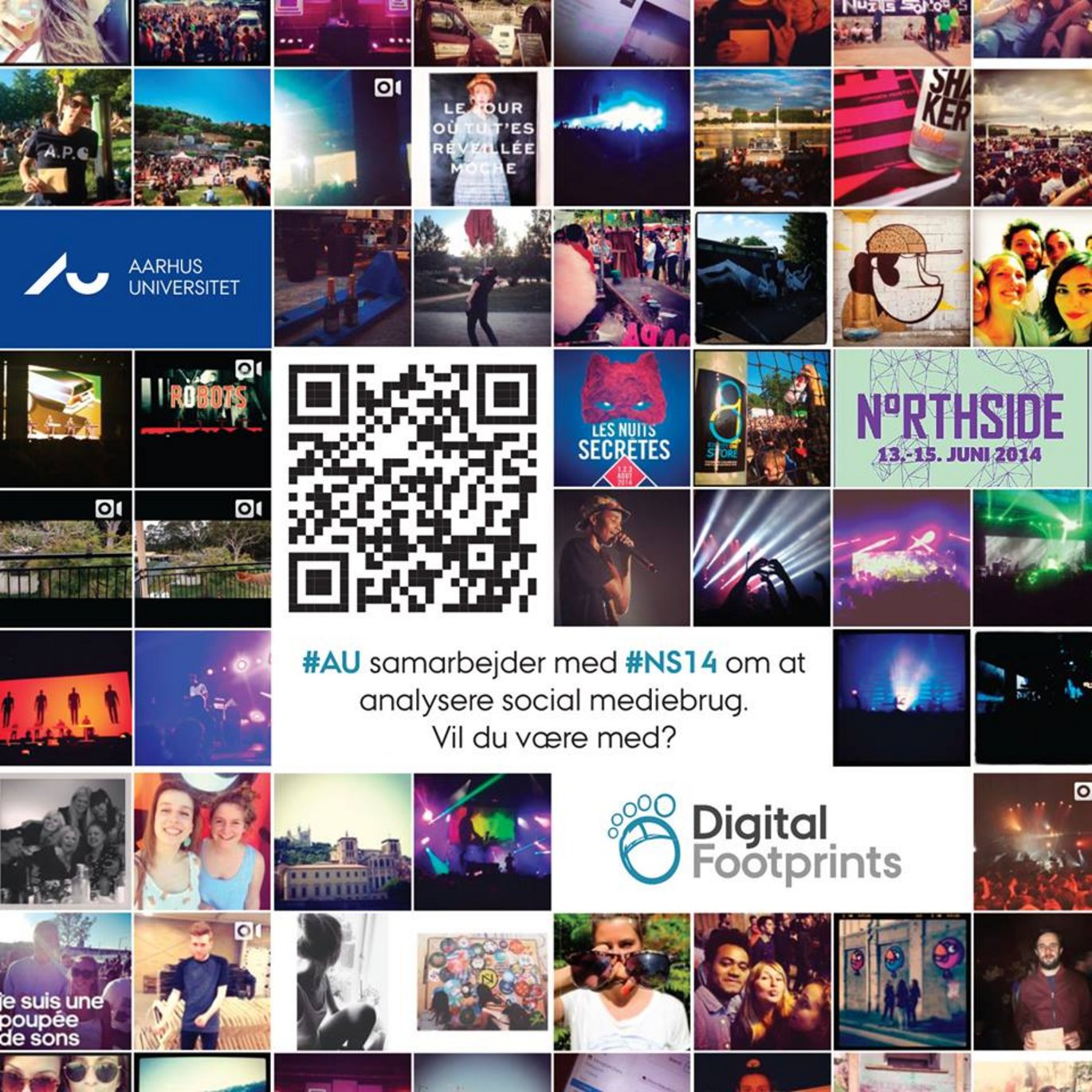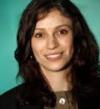Show me your #festival
This summer's music festivals are waiting just around the corner, and they all have one thing in common; even though participants are present at the festival site, they are also present in cyberspace. The social media have really taken over the festival sites. A group of researchers from Aarhus University have entered a collaboration with NorthSide, in order to examine the role that the social media have come to play in the entire festival experience.

One of our theses on the use of the social Media is that they help to improve the festival experience, both before and after the festival. When the festival is over, the participants can use the social Media to remain part of the festival universe, and this provides a sense of community ," explains Associate Professor Anja Bechmann, who is the manager of the research group Digital footprints at Aarhus University. She was one of the eight researchers who participated at NorthSide in June, with the purpose of investigating what the social Media contribute with, when added, as a digital layer, to a cultural event such as NorthSide.
Apart from the strengthened sense of community, the research also showed that the digital media also have significant meaning at the individual level.
`As far as the qualitative interviews are concerned, it became clear that the activity at the social media had three purposes: To provide friends at the festival with one´s own version of the events, to make other friends, who were not participating in the festival, jealous, and to make sure that those same friends would be participating next year´, Anja Bechmann explains.
Most active before, during or after the festival?
The research groups also set out to investigate whether or not the use of social media followed certain digital patterns. When were at festival participants most active at the social media? Was it before, during or after the festival? The answer depended on the age of the participants:
`Especially the young people were eager to save electricity. Therefore, they uploaded text and photos before and after the festival. The same applied to older festival participants, but for another reason; the wanted to be present, mentally as well as physically, during the festival, and did not wish to be distracted by social media´.
Digital Dialogue
One of the things that the researchers found most surprising was the fact that Facebook was not used very much during the festival. Apparently, festival participants found the Instagram and Twitter were more valuable to the festival experience. However, the social media, also contributed in a more informative way, Anja Bechmann explains:
`Several participants mentioned that they really appreciated having the opportunity to enter a dialogue with NorthSide, via the social media. Obtaining information directly at the festival site could be difficult, but by posting questions through the social media, people were able to get a quick response from NorthSide.
Questions pending
For the research group, the next step will be to obtain a larger and more detailed overview of, among other things, which contents the guests share on various social media platforms during the festival, what they prefer to see on the social media, and if and how they use hashtags. And there is plenty of data to start with, says Anja Bechmann:
On the technical side, we have succeeded, and that was the whole idea behind the project. The next step is to find out how to develop methods for processing this huge amount of data. It is the first time that we are working across various social media, and there was 19 000 photos on Instagram alone. Therefore, we need to develop some supportive software´.
Fortunately, help is already at hand. Two thesis students have contacted the research group, and have been affiliated with the project.
RethinkIMPACTS 2017
Being a RethinkIMPACTS 2017 project, the research project Digital Footprints is part of the collaboration that Aarhus 2017 and Aarhus University have established, with the aim of examining the significance and the effects of culture. As such, the Digital Footprints Research Group is contributing to the research-based evaluation of Aarhus 2017, which is currently taking place at AU.
Read more
Read more about rethinkIMPACTS 2017
Students offer `Kluddermor´ and toilet roulette at NorthSide.
Contact
Anja Bechmann
Mail: anjabechmann@dac.au.dk
Phone: 87162017
Mobile phone: 51 33 51 38

